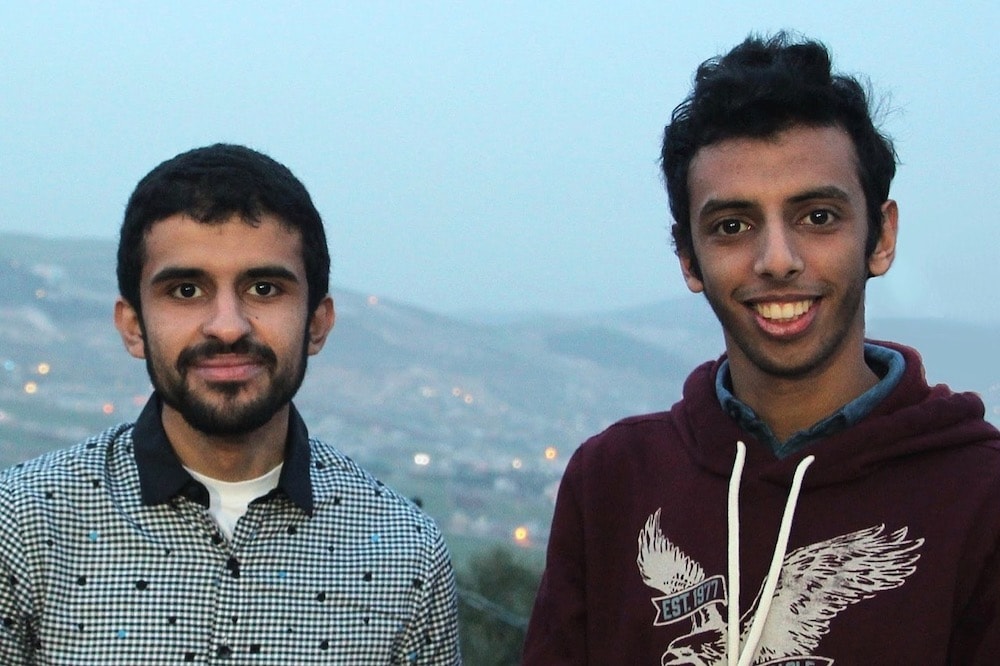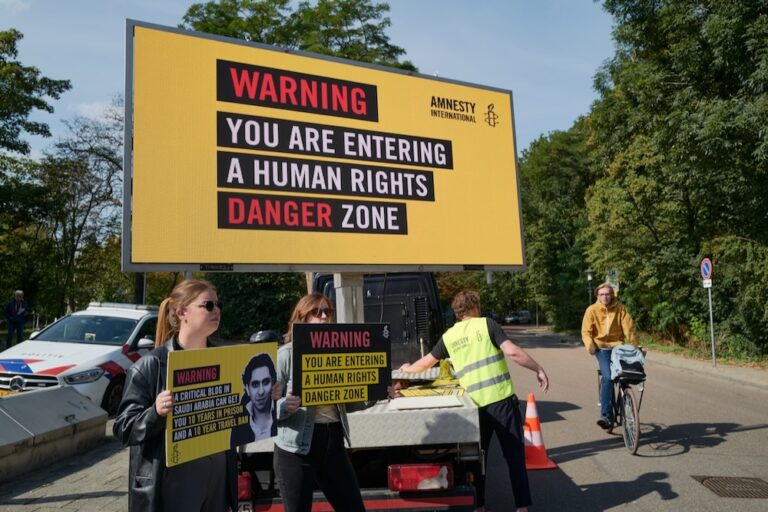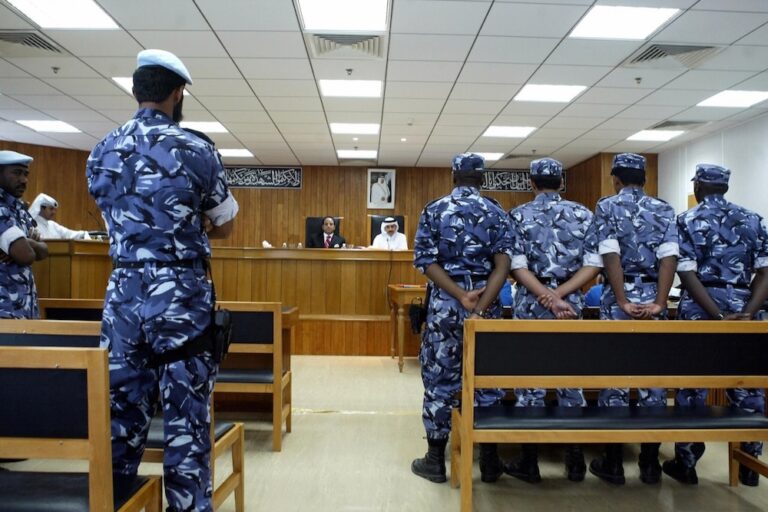IFEX and rights groups demand release of Internet activists Osama Khalid, Ziad Al-Sufyani, and others sentenced for online activism.
This statement was originally published on gc4hr.org on 18 January 2023.
Access Now, ALQST for Human Rights, ARTICLE 19, Global Voices (GV), the Gulf Centre for Human Rights (GCHR) and IFEX call for the immediate release of two Saudi doctors and internet activists arrested in 2020 for their online activism. One of them, Osama Khalid, has been sentenced to more than 30 years in prison.
Osama Khalid and Ziad Al-Sufyani, two young doctors known for their contribution to Wikipedia posts in Arabic, have been sentenced to prison in Saudi Arabia. Both have contributed to the online encyclopaedia, which is maintained and managed by volunteers, over the last decade, and had edited articles about woman human rights defender Loujain Al-Hathloul. They were arrested in the summer of 2020 while Saudi Arabia was under Covid-19 lockdown and initially sentenced to 5 and 14 years’ imprisonment respectively, before Khalid’s sentence was increased to 32 years upon his appeal. Few details are known about either case.
The news of Khalid’s imprisonment and prison sentence was first reported by ALQST in September 2022. The news was shared along with news of another case of lengthy sentences being handed down to tribal activists Abdulilah Al-Huwaiti and Abdullah Dukhail Al-Huwaiti, who both received 50-year prison terms for opposing their forced displacement from their land to make way for the building of the fantasy city NEOM.
Osama Khalid is one of Saudi Arabia’s most public-facing and well-known internet freedom advocates. His own Wikipedia page states that his work as part of Wikipedia has had a huge impact on his life, and that defending and promoting internet freedom was one of his priorities.
Unfortunately, online freedom in Saudi Arabia has reached its lowest levels in years, and the scale of repression has drastically increased. Saudi authorities have made significant efforts to not only enhance their control of the internet, but also to silence dissenting voices online.
Whilst Khalid’s and Al-Sufyani’s cases are both extremely concerning, they are not isolated. In fact, they are just two examples of a worrying new trend, in which Saudi authorities have begun issuing extremely long sentences to people as a result of them voicing their support, through a variety of online platforms, for human rights and democratisation, as well as for their peaceful criticisms of government policy. Also, there are two additional cases include those of women’s rights defenders Salma Al-Shehab and Nourah Al-Qahtani, who received prison sentences of 34 and 45 years respectively for their peaceful posts about human rights activities on Twitter.
“We are saddened and deeply concerned about these arrests and the harm they have caused to the freedom and safety of Osama Khalid and Ziad Al-Sufyani. The Foundation shares a common belief with Wikimedia volunteer communities around the world that access to knowledge is a human right,” said the Wikimedia Foundation, the non-profit that operates Wikipedia, in a statement to the six human rights organisations.
Access Now, ALQST, ARTICLE 19, Global Voices, GCHR and IFEX call for the immediate release of Osama Khalid and Ziad Al-Sufyani, as well as other internet activists including Salma Al-Shehab and Nourah Al-Qahtani, whose arbitrary arrests and unfair trials are directly linked to their peaceful online activities.
The six human rights NGOs further call on the authorities in Saudi Arabia to respect public freedoms including freedom of expression, both online and offline.
Editor’s note: This post was updated on 24 January 2023 to reflect the fact that Ziad Al-Sufyani has been sentenced to 14 years and not 8 years as previously thought.



